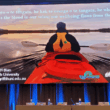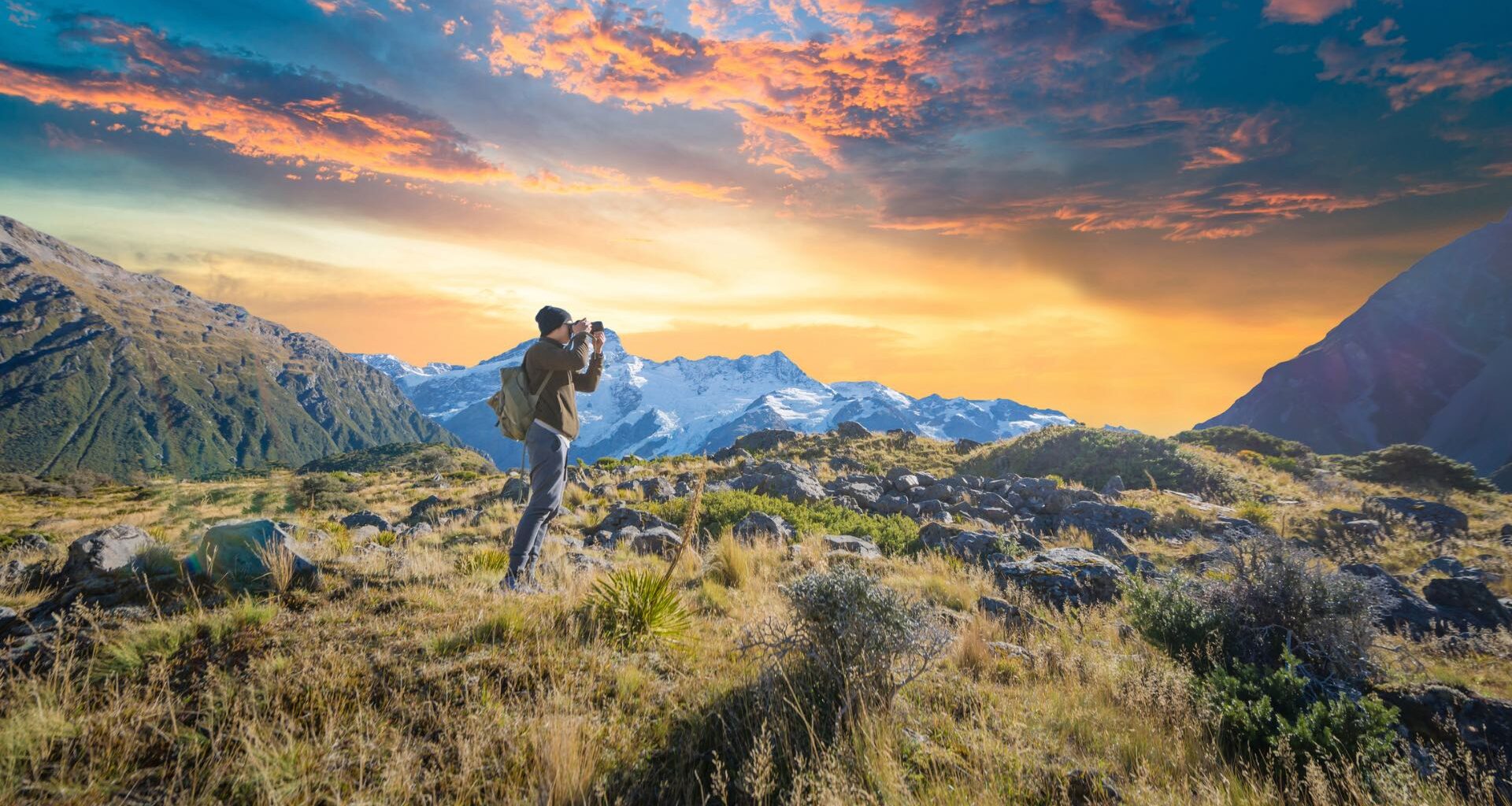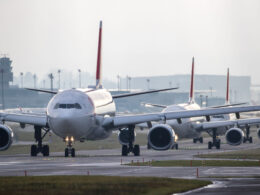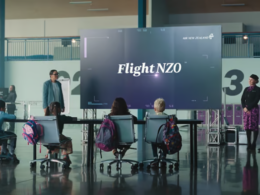As this years United Nations Climate Change Conference – COP29 – in Baku approaches next month, it is timely to ask how progress towards decarbonising tourism is going. The answer is, not nearly as quickly as required. A big part of the problem is that we lack the coordinated approach to tourism that is needed to advance urgent sector transformation.
Sources
Tourism Futures Taskforce – We are Aotearoa (2020)
The Aotearoa Circle – Tourism Adaptation Roadmap (2022)
https://www.theaotearoacircle.nz/tourism-adaptation-roadmap
Failte Ireland The National Tourism Development Authority.
Transcript
An unprecedented consensus has emerged in the four years since the outbreak of the COVID pandemic, which recognises the enormous challenges confronting the tourism industry in Aotearoa, and the need for urgent system-wide transformation. It has also become clear that the level of transformation required cannot be achieved within the structure of the existing tourism system.
Much effort has been invested in recent years into ideas about reshaping the future of tourism in New Zealand. The Parliamentary Commissioner for the Environment reports, and the Tourism Futures Taskforce report were key documents outlining the global and national threats facing tourism in Aotearoa and the need for change.
Subsequently, the Aotearoa Circle Tourism Adaptation Plan has further advanced the case for transformation. This plan was launched at the Otago Tourism Policy School in March 2023 and it highlighted three possible futures for the tourism sector based on the country’s climate action. All three scenarios highlight the fact that we must collectively do everything we can to keep below +1.5°C of warming. It made it very clear that the scale of the challenges that we will face in the future will be determined by how quickly and proactively we respond now.
But our responses remain isolated and uncoordinated. A few years ago I worked with Professor Susanne Becken on a tourism carbon footprint analysis for the Auckland region. It generated really interesting insights into the carbon emissions associated with tourism within the region and informed a set of policy and planning responses aimed at targeting key sources of emissions.
Currently the Queenstown Lakes District Council is advancing research that is intended to help implement Queenstown and Wanaka’s destination management plans. These are really creditworthy projects, but it seems a lost opportunity that QLDC is advancing this visionary initiative without wider national support and regional collaboration.
In reality all RTOs in New Zealand need stronger support. Access to consistent and rigorous emissions measurement is needed to be able to proactively respond to the challenges of decarbonisation. All RTOs need support in their efforts to advance their most urgent priorities – such as building resilience, optimising tourism and decarbonisation. They get great support from RTNZ but a coordinated system-wide approach is really needed.
****
When I talk about the tourism system I refer to all the moving parts that makes tourism function.
Tourism is a disparate sector of the economy, with many government departments, boards and industry organisations shaping – directly or indirectly – how tourism functions. These include, the Ministry of Business, Innovation and Employment and the Department of Conservation, most obviously, but also a wide range of other government departments and independent boards, such as the Ministry for the Environment, Statistics New Zealand, Waka Kotahi and Tourism New Zealand. Industry organisations include Tourism Industry Aotearoa, Regional Tourism New Zealand, and the Tourism Export Council among others.
Furthermore, different governments come and go and with them come differing political agendas and contrasting visions and aspirations for tourism. Most have short-term priorities for tourism but lack medium and long term visions. Ministers of Tourism also seem to come and go with alarming regularity, with different levels of experience and insight into their portfolios.
With so many voices at the table, as well as differing interests and agendas, it is unsurprising that efforts to transform tourism have to date been largely or entirely unsuccessful. It has been enormously difficult to coordinate efforts to advance systemic change.
The problem is that the extent of the transformation required is significant and it is not getting any easier. It’s no longer about a few isolated initiatives – it is time to change the whole game if tourism is to make a net positive contribution to all dimensions of wellbeing – environmental, economic, social and cultural.
As preparations for COP29 ramp up, I have been reflecting on a truly visionary presentation delivered by Glenys Coughlan at the Otago Tourism Policy School in Queenstown in March 2023. She spoke with authority and passion on how the tourism sector might be disrupted to advance transformational change.
She noted that the tourism industry has emerged from the ongoing impacts of the Covid pandemic and is now staring down the barrel of climate change. The IPCC’s Assessment Reports continue to highlight travel and tourism as being one of the key sectors of the global economy that is highly vulnerable to the impacts of climate change.
She reflected that the Tourism Futures Taskforce report that was delivered to MBIE in 2020 was both inspiring and ambitious, providing a strategic framework for sector transformation – and that this report well received and widely praised – before disappearing from public view.
She observed that the tourism system in Aotearoa is designed to manage and market tourism, but is not capable of advancing system-wide transformational change. In her presentation she argued that quote… “We need to accelerate the pace of change and neither government nor industry can do that on their own, nor can the level of transformation required be achieved within the existing tourism system”. Transformational change has proved to lie beyond the reach of individual government ministries working with key organisations.
What she suggested is required is a Tourism Commission – a new public-private partnership model that reflects the successful collaborative approach of the Tourism Futures Taskforce and the Aotearoa Circle.
A Tourism Commission would have a primary focus on all of the moving parts of the tourism system – including the legislative framework and management of key relationships with DoC, Waka Kotahi, and Local Government. It would have private sector representation. Investors including hotels, airports and airlines have massive amounts of capital invested in the industry. These interests need to be much more strongly aligned with the challenges that we collectively face.
Transformation would also need to be reflected in the work of Tourism New Zealand. With Regional Tourism Organisations now seeking to embed the principles of regenerative tourism into destination management it is critical that TNZ is marketing Aotearoa in ways that are aligned and integrated with these aspirations.
The new entity, which could be modelled on the Infrastructure Commission, must involve both the public and private sector – neither can do this on their own. A Tourism Commission would be charged with providing the focus of effort needed to guide and invest in tourism development that will meet the challenges that the industry will be increasingly required to confront. This approach would have spillover benefits for other sectors of the export economy.
****
Interestingly, there is a model that already exists that might usefully inform the sort of system transformation that we need. Failte Ireland is Ireland’s National Tourism Development Authority.
It provides a coordinated approach to tourism development interests and priorities in Ireland through a wide range of high-level responsibilities. These include:
- Overseeing development priorities including Irelands tourism climate action programme, tourism product development, education and career development and regional development strategies;
- It also oversees registration and grading, including Ireland’s national quality assurance framework and managing Ireland’s short-term tourist letting register;
- It coordinates Irelands national and regional marketing, including Ireland’s regional experience brands
- It manages funding programmes and advises on EU and other grants
- And it coordinates tourism research, managing a research archive that now dates back almost twenty years.
All of these things are done in a manner that brings together the wide-ranging interests of this unique industry. It provides a platform for identifying the challenges and opportunities presented by tourism, but also responding to the sustainability challenges that we face.
There is no doubt that New Zealand is well positioned to also demonstrate global leadership in tourism system transformation given the convergence of views that exist among tourism organisations and destination communities.
But transforming the tourism system is the difficult first step towards transforming tourism.








